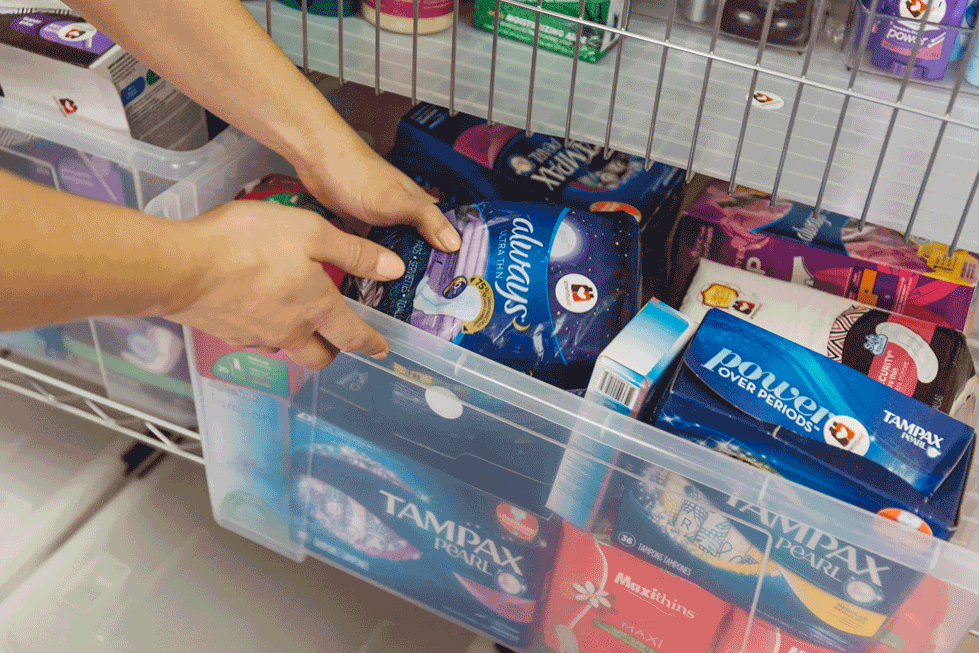
Support Us
WHY
Amenity Aid is the largest and most effective organization working to address hygiene insecurity in Rhode Island. Although some social service agencies provide minimal hygiene products, hygiene insecurity is not an expressed part of their mission. As Amenity Aid’s only mission is to help alleviate hygiene insecurity, we are able to purchase hygiene products in greater quantities at lower prices and then distribute them through our partnerships with agencies. Because of this, giving directly to Amenity Aid is the most effective way to reduce hygiene insecurity in Rhode Island.
What is Hygiene Insecurity?
Hygiene insecurity, or hygiene poverty as it is sometimes referred to, is defined as being unable to afford hygiene products needed to maintain basic personal hygiene.
One in three low-income American families struggles to afford basic hygiene products.
No government assistance programs (SNAP, WIC, etc.) address this widespread hygiene insecurity.
Hygiene insecurity is an equity issue that disproportionately impacts marginalized communities and people of color.
Most social service agencies lack the funding and capacity to provide hygiene products to their clients.
Food banks cannot be expected to expend valuable resources on non-food items like hygiene products.
The Solution: Hygiene Banks
Hygiene banks operate like food banks but for hygiene products that food banks typically do not provide. Because hygiene insecurity is their only mission, hygiene banks can buy, store, and distribute hygiene essentials more effectively and efficiently than social service agencies, government institutions, or philanthropic organizations.
Impact of Hygiene Insecurity
Inadequate access to hygiene products can affect social interactions, education, employment, mental and physical health, and many other factors contributing to overall quality of life.
Physical Health
Individuals are at an increased risk of infections and diseases without proper hygiene products, increasing healthcare burdens.
Compromised Cleanliness
Without essential hygiene products, people resort to strategies like brushing their teeth without toothpaste, overusing period products, or bathing without soap.
Education Interruption
Children and teenagers skip school when they cannot access hygiene products, leading to educational disadvantages.
Prioritizing Essentials
Hygiene or hunger? Individuals are forced to make the difficult decision between toiletries and other necessities such as food, housing, and medical care.
Mental Health
Individuals facing hygiene issues report declining self-esteem, self-respect, confidence, and dignity.
Social Isolation
The embarrassment associated with hygiene insecurity can lead to withdrawal from social interactions and community activities.
Workforce Absenteeism
Employees lacking hygiene essentials may experience diminished self-esteem, impacting job performance and attendance.

“I have felt like a complete failure because I can’t afford my hygiene products.”
- 35-YEAR-OLD FEMALE NAITVE AMERICAN RHODE ISLAND RESIDENT
Period Poverty
Half of the population menstruates, yet 40% of them in America cannot afford period supplies. This issue is called period poverty, defined as the inability to purchase or access period supplies. No one should lack access to period products necessary for health and well-being. Eliminating period poverty, a specific form of hygiene poverty, is an essential part of our mission.
Period Poverty Facts
2 in 5 menstruators struggle to purchase period products.
1 in 4 teens have missed class because they do not have period supplies.
1 in 3 low-income menstruators miss work or school due to lack of access to period products.
1 in 8 menstruators in Rhode Island lives below the poverty line
Source: 2021 study conducted by U by Kotex®.
Impact of Period Poverty
People without access to period supplies often resort to using unsafe substitutes like rags, toilet paper, or cardboard.
When period products aren't available, there's a tendency to overuse items such as pads, tampons, or menstrual cups, which can increase the likelihood of infections.
The lack of access to period products often leads to regular absences from school, work, and other obligations.
Amenity Aid proudly represents Rhode Island in the Alliance for Period Supplies.



